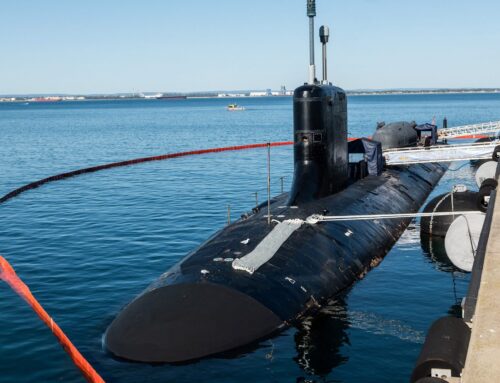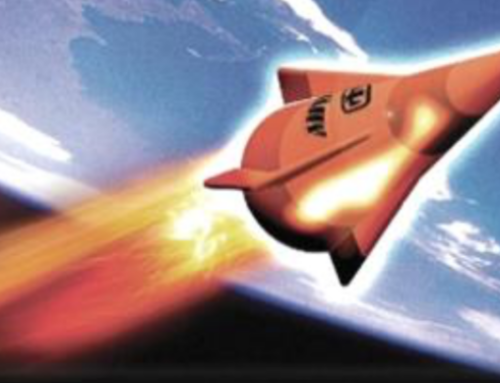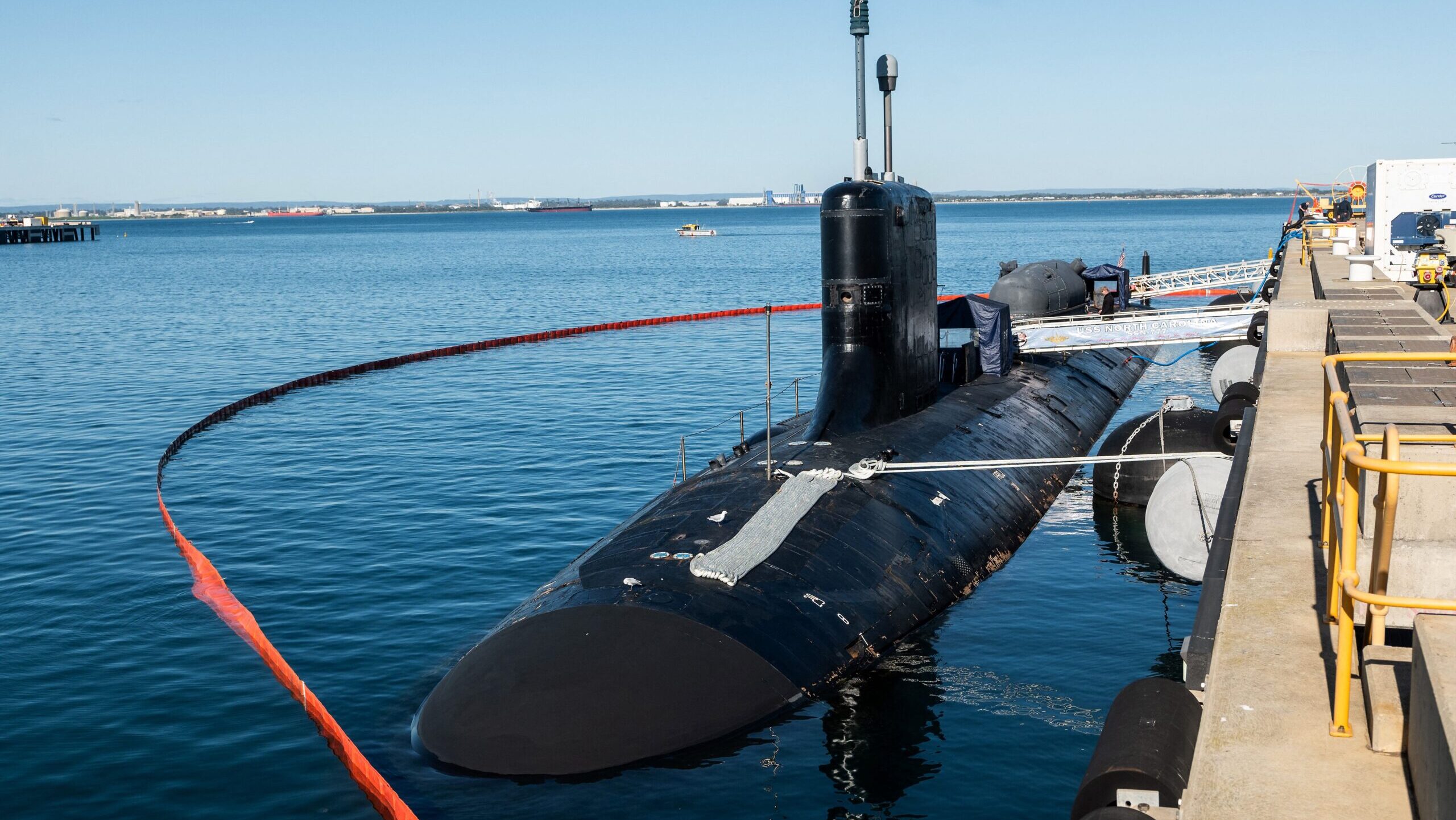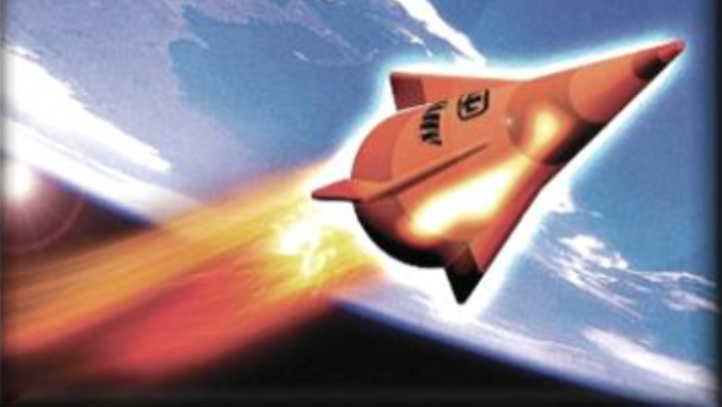Marines with 3rd Battalion, 12th Marine Regiment, a part of Marine Rotational Force-Darwin (MRF-D), fire Guided Multiple Launch Rocket System (GMLRS) munitions during Southern Reach, at Bradshaw Field Training Area, Northern Territory, Australia on August 15, 2019. (US Marine Corps photo by Lance Cpl. Brandon Salas)
WASHINGTON — Lockheed Martin and General Dynamics are joining forces to kickstart solid rocket motor production, announcing a strategic teaming agreement today that could see new motors roll off the line as early as 2025, company executives told Breaking Defense.
The new agreement could position a third vendor to enter into the ailing solid rocket motor industrial base, which currently only includes L3Harris subsidiary Aerojet Rocketdyne and Northrop Grumman in the United States. Both companies have struggled to meet demands from weapons makers like Lockheed and RTX, who are in desperate need of solid rocket motors for products such as Javelin or the PAC-3 missiles used by the Patriot missile defense system.
“We are going to make sure that we have security of supply, both in the United States and abroad, for the things that we need to be successful, and we are going to make investments to do that. We’re going to bring on partners in various areas to do that,” said Tim Cahill, executive vice president of Lockheed’s missiles and fire control unit. “This won’t be the end of that trend.”
Lockheed and General Dynamics will first develop a solid rocket motor for Lockheed’s Guided Multiple Launch Rocket System (GMLRS) with initial units set to roll off General Dynamics Ordnance and Tactical Systems (GD-OTS’s) production line in Camden, Ark., around 2025.
However, Cahill and GD-OTS president Firat Gezen told Breaking Defense that the agreement could be expanded in the future to include production of solid rocket motors for other weapon systems — essentially positioning the Lockheed-General Dynamics team as a third vendor for the much-needed technology.
General Dynamics has been evaluating whether to enter the solid rocket motor market for more than five years given its existing portfolio of energetics and missile subcomponents, Gezen said.
Although the company has done some initial development work for solid rocket motors, “we haven’t made the big investment yet,” he added. “We’ve been looking for the right way to enter the market, and teaming with Lockheed Martin was the answer for us.”
Cahill and Gezen declined to comment on how much each company would spend to bring a new solid rocket motor to production, but Cahill said it was a “significant” investment in the realm of “many millions of dollars.”
“Between the two of us, we have everything we need to execute production in large quantities of solid rocket motors,” from the design of the rocket motor to the formulation of the propellant mix and the ability to achieve production qualification, Cahill said.
Specifically, Cahill said Lockheed will be “directly involved” with the design and qualification of solid rocket motors, while Gezen said GD-OTS is making investments at its Camden facility in infrastructure and advanced manufacturing equipment to accommodate the production of “thousands” of motors.
Cahill and Gezen declined to delineate upcoming testing and production milestones, with Cahill adding that the companies will be moving “as quick as we can” to get to full-rate production.
Since Russia’s invasion of Ukraine in February 2022, demand for solid rocket motors has skyrocketed as the United States and its partners sought to backfill stocks of weapons like Javelin and Stinger, as well as provide motors to meet growing needs in the space domain. Although General Dynamics has kept its interest in the solid rocket motor market quiet until now, several defense tech startups such as Ursa Major Technologies, Anduril and X-Bow Systems have announced plans to enter the market.
Last month, Cahill told Breaking Defense that additional solid rocket motors vendors are needed “to take off some of the load” from L3Harris and Northrop as munitions production rates continue to increase. In a separate briefing with reporters, Tom Laliberty, president of Raytheon’s land and air defense systems business, said that even if current solid rocket motor suppliers were meeting all performance targets, more capacity would still be needed.
The new agreement with General Dynamics is the outcome of what Lockheed CEO Jim Taiclet in October called a “campaign-like” hunt for a third solid rocket motor supplier, with Taiclet saying then that Lockheed was engaged “in negotiations and discussions with a counterparty” that it could foster as a third source of engines.
At this point, Lockheed does not expect to enter into partnerships of this scale with any other companies, but it could wrap technologies from defense startups seeking to enter the solid rocket motor market into the existing Lockheed-General Dynamics agreement in the future, Cahill said.
“We always look at all of these emerging technologies and all these capabilities that are coming from, from some of the agile, small builders and hope and believe that eventually some of these technologies will bring to bear,” Cahill said. “That is probably one in which we would bring those technologies into this partnership, assuming that the General Dynamics and us both agree.”











